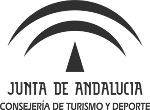Copyright
In order for RAMD to publish and disseminate research articles, we need publishing rights. This is determined by a publishing agreement between the author and RAMD. This agreement deals with the transfer or license of the copyright to RAMD and authors retain significant rights to use and share their own published articles. RAMD supports the need for authors to share, disseminate and maximize the impact of their research and these rights in RAMD, are defined below:
For open access articles
Authors sign an exclusive license agreement, where authors have copyright but license exclusive rights in their article to the RAMD. In this case authors have the right to:
- Share their article in the same ways permitted to third parties under the relevant user license (together with Personal Use rights) so long as it contains a CrossMark logo, the end user license, and a DOI link to the version of record on OJS RAMD.
- Retain patent, trademark and other intellectual property rights (including research data).
- Proper attribution and credit for the published work.
Rights granted to Elsevier
In relation to all published articles, the RAMD has the following rights:
The exclusive right to publish and distribute an article, and to grant rights to others, including for commercial purposes.
For open access articles, Elsevier will apply the relevant third party user license where Elsevier publishes the article on its online platforms.
The right to provide the article in all forms and media so the article can be used on the latest technology even after publication.
The authority to enforce the rights in the article, on behalf of an author, against third parties, for example in the case of plagiarism or copyright infringement.
Protecting author rights
Copyright aims to protect the specific way the article has been written to describe an experiment and the results. RAMD is committed to its authors to protect and defend their work and their reputation and takes allegations of infringement, plagiarism, ethic disputes and fraud very seriously.
If an author becomes aware of a possible plagiarism, fraud or infringement we recommend contacting whit Editor of RAMD contact who can get in touch with the legal advice of the Journal. Note that certain open access user licenses may permit quite broad re-use that might otherwise be counted as copyright infringement. For details about how to seek permission to use an article see our permission page.
Open access
Copyright works with open access licenses
RAMD proprietary journals the following steps apply:
Authors sign a publishing agreement where they will have copyright but grant broad publishing and distribution rights to the publisher, including the right to publish the article on Elsevier's online platforms.
The author chooses an end user license under which readers can use and share the article.
The publisher makes the article available online with the author's choice of end user license.

